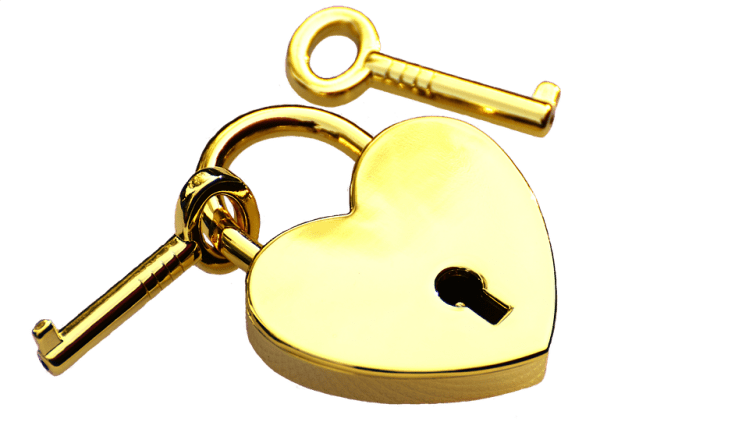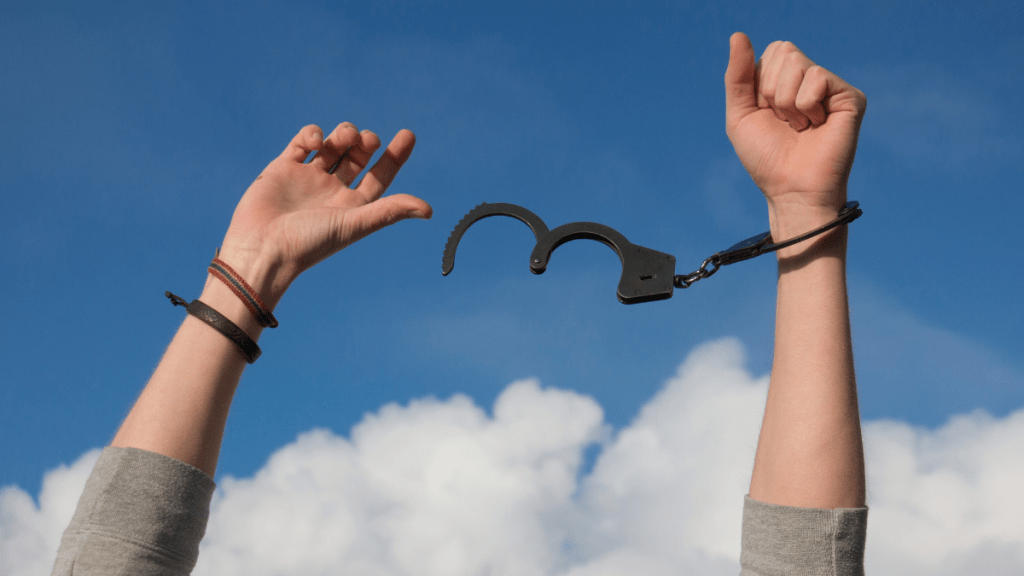Take a minute to ask yourself these questions:
- What does freedom look like in my life?
- How would I know if I was free?
- And, why is freedom so important to me?
In the past, I’ve associated freedom with the physical, through my body. Running always felt like freedom to me, however, there have been few times in my life when my body felt the ease of running. What does physical freedom really feel like then? And what about emotional freedom or spiritual freedom? Have you ever experienced these freedoms?
I’ve been confronted many times with the implications of continuing to live day-to-day from a very limited self-imposed slave mentality. I look back and see its prevalence, to the point of believing my soul’s mission is to understand and experience true freedom. It felt like I’d been fighting in the darkness trying to get free for lifetimes. I also believe “guilt” played a large part in being my jailer, guilt from believing the thought “I am a failure.”
There’s no way I could ever be free with that going on. The side effect of such a mentality also ensures a consistent dose of self-punishment.
Somewhere in my unconsciousness lived a slave (someone who isn’t free) and this slave-part wanted to be acknowledged and healed. From what I could tell, my slave part wanted to do a good job and get lost in a task, be a hard worker, keep its head down and be invisible. It didn’t like confrontation and was content to “stay within the lines.” It also wanted to be left alone . . . to lick its wounds, sort-of-speak. Pain, suffering and inner violence (self-punishment) were my friends and comfort through my darkest times.
It’s backwards, finding comfort and pleasure in pain and suffering . . .
it’s also an illusion of safety.
In a strange way, I’ve been able to feel content within my self-imposed jail. I knew what to expect. I was “in control” as a follower, a hard worker, and did as I was told. I was really good at this and received lots of praise and recognition as being a capable, able, dependable worker. I remember that my second-grade report card said I was conscientious. I had no idea what that meant at the time, but everyone else thought it was good. So back then, in second grade (7 years old), I already had a well-developed slave on board, keep your head down, be a good-girl, and do as you’re told.
Rebel? Not even in my consciousness, or if it was, it was buried quite deep.
The words “learned helplessness” came to mind.
From Wikipedia:
Learned helplessness is behavior typical of a human or non-human animal and occurs where a being endures repeatedly painful or otherwise aversive stimuli which it is unable to escape or avoid. After such experience, the being often fails to learn or accept “escape” or “avoidance” in new situations where such behavior would likely be effective. The being learned that it is helpless in situations where there is a presence of aversive stimuli and has accepted that it has lost control, and thus gives up trying.
In other words: After ‘learning’ there is no possible escape, a person is unable to find or see resolutions to difficult situations — even when a solution is accessible.
For example, an elephant is tied up for a certain amount of time and learns that it can’t get any farther than the rope. After a while it stops trying to escape – even when the rope is removed, the elephant will remain within the original rope boundaries.
Learned helplessness is a very real thing and I believe it had stopped me from recognizing my true self and from realizing, although the jailers were gone, I remained in prison.
There was a huge payoff to staying small. I had total control and could manage a good living. The cost? Not living a life I loved, and not having freedom. If I were to “step out” of my imposed rope, my life may have gotten a little out of control and I may have had to take responsibility. I may have had to be impulsive, spontaneous and take risks. I may even have had self-worth and self-love as a matter of course.
My suffering would have ended. I would have been free.
My contentment at being a slave was however being tested, it was no longer working since my soul demanded I grow. Resolving the issue of slavery must have been really important to me and have existed for over many lifetimes.
I usually cry when the Olympics are on. I cry when people overcome great adversity in order to rise to be champions! It’s because this is what my soul really wants for me. Somewhere inside me is a champion that’s been stuffed down, stamped on and told to be quiet. Time to brush it off, get to know this champion and empower it.
When we are no longer able to change a situation, we are challenged to change ourselves. Everything can be taken from a man but one thing: the last of the human freedoms—to choose one’s attitude in any given set of circumstances, to choose one’s own way.
viktor frankl
I’ve come to understand that I experienced slavery over and over again so I could wake up to the fact that I was in a jail cell of my own making. My real job then, was to find freedom within my self-imposed prison. I could do this only by accepting “my cell” without resistance. I had to choose my jail cell and choose to take responsibility for continually manifesting this situation – because I created the cell to begin with in order to experience captivity (slavery) – and then, and only then, could I break out of jail into freedom.
I’ve included below a story about a prisoner who overcame imprisonment and found freedom in jail. I read it about 25 years ago and it really struck a chord in me and gave me great hope. It shows that if one can be free in a prison, one can be free anywhere!
Survival in China Jail: One American’s Saga
(by Takashi Oka, Staff correspondent of The Christian Science Monitor APRIL 1, 1980)
Sydney Rittenberg is an American who lived in China since 1945 with his Chinese wife and four children. He stayed in China after the communist takeover to maintain some link between China and the US. Everything went well enough until one night, at the height of the cultural revolution, a carload of soldiers came to his home and dragged him away to prison. He was in solitary confinement for 10 years. He left prison in good health and spirits and without bitterness.
How could he have survived such an experience? Mr. Rittenberg had to get back to fundamentals. What made life worth living? Wife, children, friends, books, music, food? All these he loved. But what really counted, he decided, was the sense of having made some contribution, however small, to the long river of human progress, to the cause of human happiness. Even enclosed within four walls, he could make his contribution. It was the quality of the contribution that counted, not its scale.
He defined freedom to himself as “the ability to develop a rational course of action based on facts and aimed at human happiness,” and decided in line with this interpretation that “whether I was free or not depended on me, not on my jailers.”
So Mr. Rittenberg talked to his guards about anything and everything including his boyhood in Charleston, South Carolina, methods of treating hiccups, and all sorts of facets of life in the United States. I’m making a contribution, he kept telling himself as he did so. I’m making a contribution.
Mr. Rittenberg also decided to keep his cell spotlessly clean. Whatever scraps of rags he had, he used to scrub and scrub until he could literally eat off the floor. When the keepers came around with their mops, he could truthfully tell them that there was no work for them to do.
He could see that his actions, as well as his speech, had an effect on his guards. He was proving to himself that even in prison one human being could communicate effectively with another.
All this is not to say that Rittenberg had an easy time of it. He reports that every morning he came slowly awake with the crushing realization that he was still in prison. Every morning for 10 years, he had to recontextualize his situation.
“I’m not passive. I’m learning something, doing something, thinking about something. I’m going to live on, I’m not going to die.” As thus he disciplined his thinking, he found that his entire prison experience was “not a subtraction from life, but an addition, not a black hole but part of my ongoing education.”
Mr. Ritttenberg stayed active and refused to let his circumstances drag him down. He triumphed and lived without focusing on suffering. He maintained his priorities and in that, he was free.

Click here if you would like to read the entire China Prisoner article.
Mr. Rittenberg’s book is called The Man Who Stayed Behind and is available on Amazon.
Please feel free to share comments!!


Leave a reply to Donna Guillemette Cancel reply